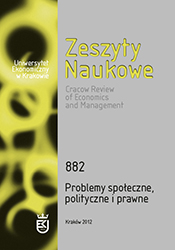Johanna Gottfrieda Herdera koncepcja człowieka
Johann Gottfried Herder’s “Idea of Man”
Author(s): Leszek KusakSubject(s): Philosophy
Published by: Wydawnictwo Uniwersytetu Ekonomicznego w Krakowie
Keywords: philosophical anthropology; Mängelwesen; Besonnenheit; idea of man; holistic system
Summary/Abstract: Johann Gottfried Herder is valued in our time as a theoretician of literature and art, a precursor to the philosophy of language, a philosopher of history and a researcher of the Old Testament. His influence on contemporaneous philosophical anthropology, which originated with Max Scheler and Helmuth Plessner, is nevertheless little known. Herder created an extremely interesting and surprisingly modern “Idea of man” which is in no respect inferior to its later, 20th century equivalents. The key concept known as Besonnenheit is a holistic system where the intrinsic structure of forces and talents in man are crucial in paving a development that stands in stark contrast to that of the animal world. To Herder’s credit, he enriched the study of philosophy with a number of key concepts without which it would be difficult to imagine a modern discussion about man. For example, his description of man as the Mängelwesen or “artificial” being that is “open to the world”, one that is able to say “no”, draws attention to the unburdening function of the language. Because of this contribution, Herder can legitimately be considered the forerunner of the modern reflection on man and, specifically, the founder of philosophical anthropology.
Journal: Zeszyty Naukowe Uniwersytetu Ekonomicznego w Krakowie
- Issue Year: 882/2012
- Issue No: 06
- Page Range: 27-45
- Page Count: 19
- Language: Polish

